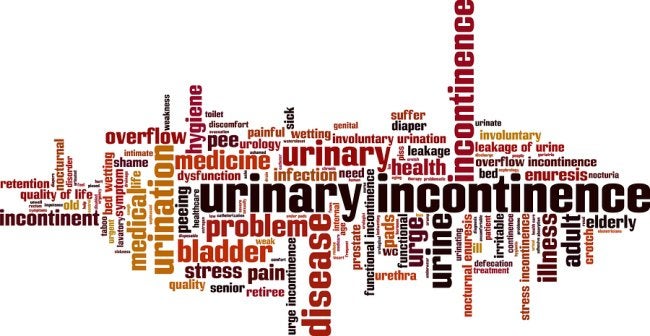-
Advice for Discussing Sexual Health Issues with Your Partner

If you or your partner is experiencing sexual health issues, such as erectile dysfunction or low libido, communication is an essential part of overcoming them. It’s not always easy to begin a conversation about sexual health, but it’s important for your relationship to have an open and ongoing dialogue with your partner about issues you may both be experiencing. These tips for discussing sexual health can help you start the conversation.
Pick the Right Time and Place
Because sexual health can be a sensitive topic, choose the time and place of your conversation wisely. Pick a time when you and your partner can sit together without distractions and aren’t rushed. Have your conversation in a private place, where both of you can feel comfortable talking about the issues openly and honestly. Avoid starting the conversation before work, when you have someplace to be, or otherwise have obligations that could interfere with your ability to talk for as long as you need to.
Be Direct
Be direct with your partner about your concerns about your sexual health and how it is or could affect your relationship. If you have been diagnosed with a problem by your urologist, it can helpful to explain your condition and even give your partner materials your doctor may have provided to help you understand it. If your partner is the one experiencing the issue, ask any questions you may have and offer to research the answers together. The more informed both of you are about the issues, the better equipped you will be to face them together.
Talk About Treatments
Help your partner understand the treatment options available for the sexual health issue you are experiencing, or ask questions about the treatments he or she is considering. In many cases, partner involvement in treatments can be helpful. In all cases, having the support of your partner when dealing with sexual health issues is important.
Your urologist at Urology Associates, P.C. can help you prepare for your conversation about sexual health by equipping you with the information you need. If you are experiencing sexual dysfunction in Tennessee, make an appointment with a urologist today by calling (888) 329-7700.
-
When to See a Urologist About Premature Ejaculation

At least one in three men will experience premature ejaculation at some point in their lives, and when it is an infrequent issue, then it is not typically cause for concern. However, there are instances in which you should consider talking to a urologist about premature ejaculation, to improve your sexual health and ensure that no underlying health issues are contributing to the problem.
Talk to a urologist about premature ejaculation if you almost always ejaculate within one minute of beginning intercourse or if you are almost always unable to delay ejaculation when you want to. Even if premature ejaculation doesn’t happen often to you, talk to a urologist if you avoid intimacy because of your concerns about ejaculating prematurely.
Urology Associates, PC, and our Men’s Health Clinic provide men with comprehensive sexual health services for concerns such as premature ejaculation and erectile dysfunction. To make an appointment to talk to a urologist about sexual dysfunction in Nashville , please call (855) 901-1338.
-
Treatment Options for Women with Incontinence

Urinary incontinence can cause an enormous amount of anxiety for women, but if it is happening to you, you should know that you are not alone. Incontinence impacts the lives of millions of women of all ages in the U.S. Up to 80% of the 25 million people who live with urinary incontinence are women. The good news for women with incontinence is that you don’t have to suffer in silence. Multiple treatment options are available to control your symptoms and let you approach life with confidence again. Help starts with a visit to your urologist, who may recommend one of these treatments for your incontinence symptoms.
Behavioral Training
In some cases, incontinence symptoms can be overcome with behavioral training, such as bladder training. Bladder training involves scheduling visits to the bathroom and gradually increasing the time between visits, delaying urination for a set period of time when the urge strikes, and doing Kegel exercises to give you better control of the pelvic muscles that stop the flow of urine. Some women find that these exercises help them get adequate control of their symptoms without further treatment.
Medications
When behavioral training is not sufficient, your urologist may recommend medications. There are a number of different medications that can help with incontinence. The one your doctor selects for you depends on a number of different factors, including the type of incontinence you have. For instance, estrogen creams can help with stress incontinence, while Botox can be used to treat urge incontinence. Medications can be used alone or in conjunction with behavioral training.
Lifestyle Modifications
Alongside other treatments, your doctor may recommend some lifestyle changes that could help control your incontinence. Avoiding overconsumption of fluids, wearing a tampon when you jog or dance to put pressure on your urethra to reduce leaks, and avoiding alcohol and caffeine can all be helpful.
Don’t let incontinence impact your life for another day. At Urology Associates, PC, we can help you control your incontinence symptoms and get back to enjoying the activities you love. Make an appointment with a urologist in Tennessee today by calling (855) 901-1338.
-
Taking a Closer Look at Prostatitis

Prostatitis refers to inflammation or infection of the prostate gland, and it is the most common prostate condition in men over 50. There are four main types of the condition, and each requires care by a urologist . If you have been diagnosed with prostatitis or believe you could have the condition, here is what you need to know.
What are the types of prostatitis?
The most common type of prostatitis is chronic pelvic pain syndrome, or CPPS, which represents about 90% of prostatitis cases. CPPS causes painful ejaculation, pelvic pain, and rectal pain. A second type, asymptomatic inflammatory prostatitis, does not cause any symptoms and is only diagnosed when your urologist is examining the semen looking for another prostate condition. Acute bacterial prostatitis is an easy-to-treat infection, but it occurs rarely. It causes a sudden onset of pelvic pain, burning during urination, inability to empty the bladder, and fever. The fourth type, chronic bacterial prostatitis, is also rare. It causes symptoms similar to acute bacterial prostatitis but less severe and longer lasting.
What are the causes?
There are several different potential causes of prostatitis. Acute and chronic prostatitis occurs when bacteria from urine backs up into the prostate, usually as the result of a bladder infection, recent catheterization, or injury to the prostate. Other forms of prostatitis can be caused by infections, STDs, pelvic muscle spasms, or doing physical activity while your bladder is full.
How is prostatitis treated?
Treatment for prostatitis depends on the type. Prostatitis caused by bacterial infections can be treated with antibiotics. In some cases, it may be necessary to take the medication for several months. CPPS can be more challenging to treat. Your urologist may try multiple treatments, including muscle relaxants, and alpha blockers. Warm baths, physical therapy, and dietary changes, including avoiding spicy or acidic foods, may also help.
If you are experiencing the symptoms of prostatitis or another urological condition, make an appointment with Urology Associates, PC. We provide comprehensive urology services, from erectile dysfunction care to treatment for incontinence in Tennessee. For more information or to schedule a consultation, please call (855) 901-1338.
-
Recovering From a Vasectomy

Vasectomy is a fairly minor procedure that men can have as a form of permanent birth control. During this procedure, the vas deferens is sealed so that sperm will no longer be present in your semen. The recovery time for vasectomy is short, but there are certain steps you can take to ensure that everything goes well.
Support and Treatment
Your doctor will give you specific instructions for recovery, but there are some general tips to follow. It is normal to have some bruising, swelling, and pain, but if these symptoms worsen or don’t get better after a few days, be sure to call your doctor. For the first 48 hours after surgery, support your scrotum with a bandage and tightfitting underwear. Apply ice packs to the area for the first two days.
Limit Physical Activity
Following vasectomy, you will need to rest completely for at least 24 hours. After two to three days you can do light activity if you feel well enough, but you need to avoid sports and heavy lifting for at least a week. It is also important to abstain from sexual activity for at least a week, as ejaculation can cause pain and bleeding. When you do resume sexual intercourse, be sure to use another form of birth control until a doctor confirms that there is no sperm in your semen.
If you are considering vasectomy or any other urological procedure, our highly skilled team at Urology Associates, P.C. can provide you with any information you need. Visit us online or call to schedule an appointment at (877) 317-8639. We provide excellent urologic care to both men and women in the Nashville area.
-
What Are the Symptoms of Overactive Bladder?

Overactive bladder—sometimes called OAB—is a common condition that causes the overwhelming need to urinate and the inability to stop the flow of urine. The intrusive condition can be controlled with the help of your urologist, so see your doctor if it happens to you.
There are four symptoms of OAB. One is urgency, or the need to urinate right away with little ability to control it. Frequency is another symptom. People with OAB urinate more than eight times per day, rather than the typical four to six times per day. Urge incontinence, the loss of urinary control after experiencing an urge, is also a symptom, as is nocturia, or waking two or more times per night to urinate.
You don’t have to live with the stress and embarrassment of OAB. Make an appointment at Urology Associates, P.C. We provide comprehensive urology and sexual health care, from UTIs to ED and bladder cancer. Make an appointment with a urologist in Tennessee today by calling (855) 901-1338.
-
Spotlight on Varicocele

Varicoceles are similar to varicose veins, except they affect the scrotum instead of the legs. They occur when the blood that flows through the veins in the scrotum doesn’t move properly and instead backs up, causing bulging blood vessels. In some cases, a varicocele doesn’t cause any symptoms at all, while in other cases, they can cause significant discomfort. If you suspect you have a varicocele, see your urologist as soon as possible. Surgical treatment is usually necessary.
What are the risk factors for varicocele?
There are not any clear-cut risk factors for varicocele, though they seem to be more common in men who are tall and less common in men who are overweight. They are most common in men during puberty, though they can happen at any stage of life.
What are the symptoms?
Some men with varicoceles experience a feeling of heaviness or aching in the testicles after standing for a long period of time. There may be obvious shrinkage of the testicles and enlarged veins may also be visible. Frequently, there are no symptoms at all. Because varicoceles can cause significant problems with fertility, many men find out that they have them in the course of a fertility screening. They may also be diagnosed during a routine physical exam.
What treatments are available?
You may not need treatment for varicoceles if you are not experiencing any symptoms and your fertility is not impaired. If you do require treatment, there are multiple surgical solutions your urologist may recommend. A microsurgical varicocelectomy, during which the veins that are causing problems are closed so that blood flow redirects to other veins, is considered to have the best treatment outcomes. Laparoscopy is another option, but it is considered to have more risks. Percutaneous embolization, in which a coil is inserted into the vein to block it off, is usually only performed if other treatments have failed.
The specialists at Urology Associates, P.C. treat a wide range of men’s health issues, from erectile dysfunction to male infertility in Tennessee . Don’t let varicoceles or sexual health problems impact your life. Call (855) 901-1338 to make an appointment.
-
What Men Should Know About Prostate Cancer
There is significant disagreement about which men should be screened for prostate cancer and when these screenings should begin. Screening all men leads to over-diagnosis and over-treatment of prostate cancer, but preventative screenings can be helpful for some men. Your urologist will help you decide what is right for you.
Watch this video to understand how your urologist may decide if prostate cancer screening is right for you. By considering your risk factors, your urologist will determine if you should be screened and when screenings should begin.
At Urology Associates, P.C. , we offer comprehensive care for everything from prostate cancer and erectile dysfunction to kidney stones in Tennessee. To make an appointment with a specialist, call (855) 901-1338.
-
Answering Common Questions About Female Sexual Dysfunction

Sexual dysfunction in men, such as erectile dysfunction, get a lot of attention, but women can suffer from sexual health issues as well. As with men, sexual dysfunction does not have to ruin relationships and destroy self-esteem in women. If you are a woman who is experiencing sexual dysfunction, have a frank conversation with your doctor to learn what your treatment options are. Here is a look at some of the questions women and their partners often have about sexual dysfunction.
What is sexual dysfunction in women?
A number of different symptoms are associated with sexual dysfunction in women. Lack of libido is a common problem for women, as is vaginal dryness and painful intercourse. In some cases, the cause of the sexual dysfunction is purely hormonal. In other cases, other factors can be at play. For instance, recurrent yeast infections that lead to painful intercourse can inadvertently lead to low libido as women become hesitant to be sexually active because of past discomfort. Stress, poor health, and unhealthy relationships can all also impact libido.
At what age do women experience sexual dysfunction?
Many people associate problems with sexual health in women with menopause. Although the risks of low libido and vaginal dryness are higher during menopause because of the significant hormone fluctuations, women of all ages are prone to problems with sexual health. No woman is too old or too young to experience sexual health problems and get help for them.
What treatments are available?
Sometimes, treating an underlying problem that is causing sexual health problems, like persistent yeast infections, can resolve symptoms. Likewise, hormone therapy can also be helpful. Other treatments, like the MonaLisa Touch laser, can reduce vaginal dryness that causes painful intercourse without medications.
Urology Associates, P.C. and our Women’s Institute for Sexual Health (WISH) helps women reverse sexual health problems regardless of age. When you need a urologist in Tennessee for UTI treatment, incontinence, sexual health problems, and more, please call (855) 901-1338.
-
What Can Cause Difficult Urination?

Difficult urination is a problem that can result from several causes. While aging can affect your ability to urinate, there may be other issues to consider, as well. Difficult urination can be a symptom of some medical conditions, such as urinary incontinence, urethral strictures, and nocturia, so it’s important to be evaluated by a urologist if you’re having this problem.
If you aren’t sure if you’re experiencing difficult urination, then there are several symptoms to keep in mind. A slow or weak urine stream can indicate that you have trouble urinating properly, as can pain in your lower back or abdomen or pain when you urinate. Feeling an increased need to urinate that interferes with your sleep can also be a sign of difficult urination.
At Urology Associates, P.C., our team of skilled doctors can diagnose and treat a broad range of sexual health and urinary tract conditions . If you’re experiencing symptoms of difficult urination, please give us a call today at (855) 901-1338 to make an appointment with one of our urologists in Tennessee.
Recent Posts
categories
- Uncategorized
- Bladder Cancer
- Women's Sexual Health
- MonaLisa Touch
- Urology
- Urologist
- Erectile Dysfunction
- Kidney Cancer
- Incontinence
- Prostate
- MonaLisa Touch Laser Treatment
- Kidney Stones
- Urinary Tract Infections
- Event
- Sexual Dysfunction
- Testicular Cancer
- Prostate Cancer
- Urology Surgery Center
- urinary incontinence
- vaginismus
- noncoital pain disorder
- Hypoactive Sexual Desire Disorder
- Infographic
- provenge
- Xofigo
- robotic surgery
- hormone replacement
- diabetes
- renal cell carcinoma
- pelvic pain
- hematuria
- sexual health
- chronic testicular pain
- premature ejaculation
- Men's Health Clinic
- Dr. Melvin Seard
- Interstitial Cystitis
- vasectomy
- overactive bladder
- vaginal atrophy
- nocturia
- bladder infections
- urethral strictures
- Acute Epididymitis
- low sex drive
- circumcision
- pelvic floor dysfunction
- Peyronie's Disease
- prostatitis
- female sexual dysfunction
- varicocele
- difficult urination
- low libido
- PSA levels
- male fertility
- penile prosthesis
- prostatic intraepithelial neoplasia
- male infertility
- estrogen levels
- nurse navigator
- stress urinary incontinence
- vaginal yeast infection
- elevated psa
- painful sex
- adult circumcision
- epididymitis
- OAB
- kidney infection
- penile cancer
- pelvic organ prolapse
- Vasectomy Reversal
- bone health
- cystectomies
- clinical trials
- bloody urine
- Advanced Therapeutic Center
- WISH MedSpa
- neurogenic bladder
- WISH Team
- prostate biopsies
- BPH
- fecal incontinence
- lithotripsy
- osteoporosis
- kidney cysts
